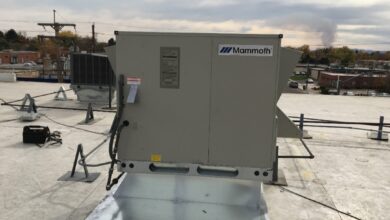Investing In The Right Property Within Budget

Investing in the right property within your budget is an important topic. And finding it is not a simple task. Here I am going to explain some easy ways for you.
Here are some steps to consider when investing in the right property within budget
Research the area
The first thing you need to do is research the area that you are considering buying a property in. You can do this by talking to people who live there, reading the local papers and even looking at property prices for similar properties in the area. If you’re looking for a rental property, check out the rental market in the area and see what the competition looks like. look for flats in the Thrissur area
Affordability
Affordability is one of the biggest reasons why people don’t invest in property. They worry they won’t be able to secure a loan and they don’t want to throw their money away on an investment that’s not going to make any money.As well as being affordable, it’s important to consider where you’ll be buying and what that means for your rental income.
Market growth
It’s important to look at the market growth of the area before investing in property. It’s best to invest in an area that has seen good growth over the years and is likely to continue growing. Make sure that whatever type of property that you choose will allow you to make a profit on it after all expenses are paid off.
Buyer’s checklist
If you’re looking for a property that can give you good returns on investment, then it’s important to choose a property wisely. Here are some tips on how to buy the right property within budget:
Location:
Location is one of the most important factors when deciding on a property. You want to make sure that it’s in an area with good schools and other amenities, such as parks or shopping centers.Thrissur is a major location and there many budget-friendly flats in Thrissur
Property Type:
There are many different types of homes available on the market today, including condos, townhouses and single-family homes (detached). Each type offers different benefits and drawbacks depending on your lifestyle needs
Financing Options:
Financing options vary widely depending on location and mortgage company policies, so it’s important to do your research before choosing one.
Work out your figures
When buying a property you will need to work out how much you can afford. To do this you will need to know how much income you have coming in and what your outgoings are each month.
This will help you narrow down the number of properties that you look at so that you aren’t wasting time looking at properties which are over your budget or do not suit your needs and requirements.
Benefits of Property Investment
Investing in the right property is one of the best ways to grow your wealth and secure your financial future. And with the right knowledge, it can be easy and enjoyable too. Property investment is a good thing because it offers a lot of benefits.
Tax Benefits:
Property investment has always been a popular choice for tax planning. You get to enjoy significant tax benefits by investing in residential and commercial properties.
Security:
Investing in property gives you security that you can’t get from other investments. If you invest wisely and choose properties with increasing value, your investment will grow steadily over time.
Cash Flow:
Property investments provide regular cash flow to investors as rents are paid on time every month. This is especially true for commercial properties where rent from tenants is usually paid on a monthly basis.
Asset Diversification:
Property investment helps diversify your portfolio by adding another asset class to it. This reduces risk and allows you to have more control over your finances.
Ignore emotional factors when buying property.
Make sure that the area suits your lifestyle. For example, if you work long hours and only want to use the property when you are at home then look for an area close to public transport links or near shops if possible. Also make sure that schools and hospitals are nearby as this will make life easier when raising children or caring for elderly relatives later down the line.
Make sure that the offer is reasonable.
Opening up your heart to a house doesn’t mean that you should overpay for it or even pay more than its market value. You don’t want to end up spending more money than what you can actually afford just because of how much you like the place or because someone else has made an offer on it already. This can be especially problematic if there’s another offer on the table; if both offers are accepted, then there could be some problems down
Ask about any permits or approvals.
Find out if there are any permits or approvals required for the property. Is there enough space for your family’s needs? Do you need a larger home? Is an addition possible? Is the neighborhood safe? What schools are nearby? What kind of taxes will I pay on this property? How much will my mortgage payments be each month? Is there anything that needs repairing or updating before we move in? These are just some of the questions that should be answered before buying a home.
Social infrastructure
ocial infrastructure: The social infrastructure includes schools, hospitals, local markets and other public places that are essential to the well-being of the residents. If you are looking at buying a house in an area where these facilities do not exist, then it would be better if you look at other options.Because your social infrastructure has such an impact on your quality of life, it’s important to choose a neighborhood that has what you need. Schools and hospitals are essential, as well as proximity to places where you can get groceries, clothing and other necessities.
Conclusion
The above examples show that property investment is a popular choice of wealth creation as it is easily accessible and you can start with a small amount that grows over time. No job is required, no education required, and no capital is needed but many people still don’t trust investing in this sector. This can be explained by the fact that they don’t know where to start, what rules to follow, and how to act.
Read more: Single Family Homes vs Multi-Family Homes: What Are the Differences?






